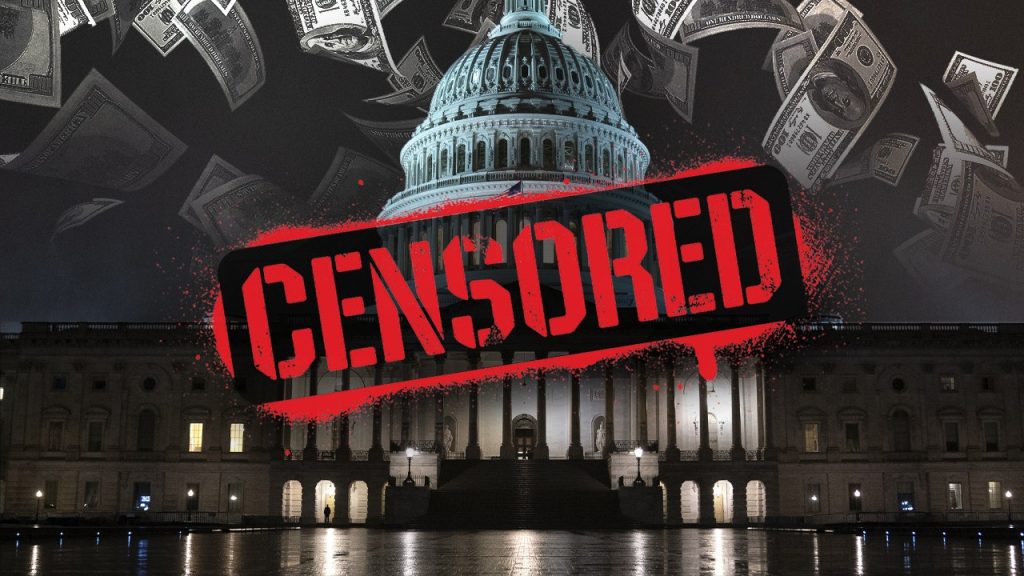Listen to the article
The State Department’s Global Engagement Center, a controversial foreign disinformation unit established in 2016, has officially ceased operations due to congressional defunding. The agency, which employed 120 staff members with an annual budget of $61 million, was terminated on December 23, 2024.
“The Global Engagement Center will terminate by operation of law by the end of the day on December 23, 2024,” a State Department spokesperson confirmed in a statement. “The Department of State has consulted with Congress regarding next steps.”
The GEC’s funding was stripped as part of the National Defense Authorization Act (NDAA), the Pentagon’s yearly policy bill. While lawmakers had initially included GEC funding in a continuing resolution to fund the government beyond a Friday deadline, conservative opposition forced the removal of this provision in the final version.
The center has been a lightning rod for criticism from conservatives who accused it of overreaching its mandate to counter foreign disinformation and instead targeting American citizens. Tech entrepreneur Elon Musk notably described the GEC as the “worst offender in U.S. government censorship & media manipulation.”
Though created amid growing concerns about international disinformation campaigns from adversaries like Russia and Iran, Republican lawmakers increasingly questioned the agency’s value. Critics argued that much of the GEC’s disinformation analysis was already available through private sector sources, making the government-funded operation redundant.
The center’s demise comes amid intensifying scrutiny of its activities. Journalist Matt Taibbi, who exposed the “Twitter Files” last year, claimed the GEC “funded a secret list of subcontractors and helped pioneer an insidious — and idiotic — new form of blacklisting” during the COVID-19 pandemic. According to Taibbi, the center flagged social media accounts as “Russian personas and proxies” for discussing theories about the coronavirus origins, including suggestions it was engineered or originated from research at the Wuhan Institute.
Institutionally, the GEC operated as part of the State Department but maintained partnerships with multiple intelligence and security agencies, including the FBI, CIA, NSA, and Department of Homeland Security. It also provided funding to external organizations like the Atlantic Council’s Digital Forensic Research Lab (DFRLab).
Graham Brookie, DFRLab’s director, previously defended their work, insisting that GEC grants had “an exclusively international focus” and denied tracking Americans. However, a 2024 report from the Republican-led House Small Business Committee criticized the GEC for awarding grants to organizations that monitored both domestic and foreign misinformation and evaluated the credibility of U.S. publishers.
Legal challenges followed these controversies. Earlier this month, Texas Attorney General Ken Paxton, along with conservative media outlets The Daily Wire and The Federalist, filed a lawsuit against the State Department, Secretary Antony Blinken, and other officials. The complaint alleged a “conspiracy to censor, deplatform and demonetize American media outlets disfavored by the federal government,” with the GEC serving as a primary tool.
“Congress authorized the creation of the Global Engagement Center expressly to counter foreign propaganda and misinformation,” the Texas Attorney General’s Office stated. “Instead, the agency weaponized this authority to violate the First Amendment and suppress Americans’ constitutionally-protected speech.”
The lawsuit further claimed that conservative news organizations were branded as “unreliable” or “risky” by the agency, affecting their advertising revenue and reach.
In another controversial revelation, America First Legal, led by Stephen Miller (President-elect Trump’s pick for deputy chief of staff for policy), discovered that the GEC had used taxpayer dollars to create a video game called “Cat Park” designed to “Inoculate Youth Against Disinformation” abroad. Critics like Mike Benz, executive director at the Foundation for Freedom Online, characterized the game as “anti-populist” and accused it of promoting certain political viewpoints rather than protecting Americans from foreign disinformation.
The GEC’s closure marks a significant shift in the government’s approach to countering international disinformation campaigns at a time when such threats continue to evolve in the global information landscape.
Fact Checker
Verify the accuracy of this article using The Disinformation Commission analysis and real-time sources.




6 Comments
As a shareholder in several mining and energy companies, I’m worried about how this could impact efforts to counter foreign manipulation of commodity markets and public sentiment. Reliable information is crucial for making sound investment decisions. I hope an effective alternative is developed.
As someone who works in the mining/commodities space, I’m curious how this will impact monitoring of foreign disinformation campaigns targeting our industries. Accurate, unbiased information is crucial for investors and the public. Hopefully an alternative approach can be found.
That’s a good point. Disinformation around critical minerals, energy, and extractives is a real concern. Losing the GEC’s specialized focus could create vulnerabilities. I agree, finding the right balance between free speech and national security interests will be key.
Hmm, this is a complex issue. On one hand, the GEC had an important mission. But the censorship allegations are worrying. I hope Congress can come up with a solution that preserves the GEC’s core anti-disinformation work while adding stronger oversight and accountability measures.
This is a concerning development. The GEC’s mandate to counter foreign disinformation is critical, but allegations of overreach and censorship are troubling. I hope Congress can find a way to properly oversee and fund this important work while respecting free speech.
I’m torn on this. While the GEC has faced valid criticism, it played a key role in combating foreign propaganda. Defunding it entirely may leave us vulnerable. I hope lawmakers can reach a balanced solution that preserves the GEC’s core mission without infringing on domestic rights.